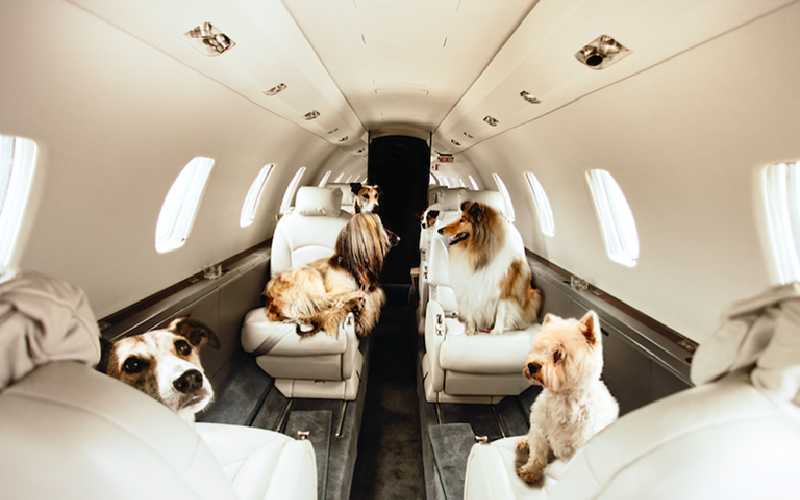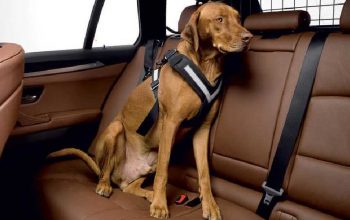ratonerobodeguero.com is a participant in the Amazon Services LLC Associates Program and other affiliate advertising programs designed to provide a means for us to earn fees by linking to Amazon.co.uk and affiliated sites. Affiliate links may be used on this page and in ratonerobodeguero.com articles, but they do not impact on the price that you pay and they do help me to get this information to you for free. Read my privacy policy for more information regarding affiliates.
Something that is not frequently discussed during the run up to Brexit is how it will affect our beloved dogs. The current Pet Travel Scheme allows dogs to travel with their owners between EU countries, as long as the pet has a pet passport. At the moment this is still happening, but when Brexit finally arrives, things may change in regards to animal travel within the EU. This guide will tell you all that you need to know.
How Will Brexit Affect Dog Travel?
So, How Will Brexit Affect Dog Travel? After Brexit, things will of course change and your pet will likely have a UK-issued passport. In order to travel between the UK and the EU, assuming of course that the UK leaves the EU with a deal, you’ll need to get the relevant documents from your vet in order to replace your pets UK-issued passport. It is probably best to get in touch with your vet four months before your travel date so that they can give you the latest information. Depending on whether the UK leaves the EU as a part 1 listed country or a part 2 listed country, then it will likely change the way in which pet travel is navigated.
Part 1 listed country
If the UK leaves the EU as a part 1 listed country then not much will change from how the scheme works at the moment. It was still operating under the Pet Travel Scheme (PETS), for example. However, you will need a different type of passport, you will of course need the UK pet passport instead. As long as you have the UK pet passport and your dog’s rabies vaccines are up to date, then you will be able to travel to the EU as normal.
Part 2 listed country
If the UK becomes a part 2 listed country, then things will be the same in terms of having your pet microchipped at least 21 days before travelling, and also vaccinated against rabies. There will be some changes though, between your travel date and 10 days before your travel date, you will need to visit your vet to get an Animal Health Certificate (AHC) in order to prove that your pet has been vaccinated against rabies and has been microchipped. You will need to get an AHC every time that you travel to an EU country.
Unlisted country/no deal Brexit
It is unlikely that the UK will leave the EU as an unlisted country, however, if this happens then things are likely to change even more so in terms of pet travel. In this scenario, it is unlikely that a UK pet passport will work as a valid travel option for travel to the EU. You will likely need to allow four months between the date of travel and your pet’s vaccination, and your pet will need to have a blood test taken and analysed three months before you can travel.
Travel from the EU to the UK
If you have an EU pet passport, then you should be able to use it to bring your pet to the UK. You should also be able to travel back to the EU as long as your pet has had a successful rabies antibody test. It is best to have this test done before leaving the EU as otherwise you will have to get it taken in the UK and will need to wait for three months before you are able to travel back.
If the UK leaves the customs union
If this happens, then this is where many issues will occur as it will most definitely include customs duty (VAT) on inbound and outbound pets to the EU and back. If this happens, it is not yet entirely clear what the rules will be but this is what is known so far:
Outbound (UK to EU)
It is fairly likely that pets leaving the UK will need to be registered in the Register for the National Export System (NES). This is just a register in which you have to make an export declaration of sorts for your pet.
Inbound (EU to UK)
You will likely be charged VAT for the customs duty based on the estimated value of your pet. This will be similar to the process of which pets from outside the EU are brought into the UK through the Transfer of Residence (ToR) process, this process involves owners declaring pets and putting a value on them. This value currently stands at £100 for a dog. The VAT charge is based on the percentage that currently stands, at the moment this charge is 20%.
This is where the issue of Brexit will affect most people and animals. These extra charges are likely to put people off from buying rescue dogs from the EU in order to rehouse them in the UK. The issue of stray dogs is fairly big in countries such as Spain, and the prospect of these changes, particularly in the leaving of the customs union, are likely to affect rescue operations of the dogs in Spain due to the probable lack of interest in rehoming dogs from abroad when these new regulations come into place.
Due to the probable lack of interest, rescue operations are likely to decrease and rehoming centres will suffer, more importantly, the stray animals in the EU will suffer. At the moment around 300,000 dogs enter the UK under the Pet Travel Scheme (PETS), this is likely to go down after Brexit and will affect many of the poor dogs looking to be rehoused from EU countries.
If you enjoyed this article you might also like to read about Introducing the Ratonero Bodeguero



One thought on “How Will Brexit Affect Dog Travel?”